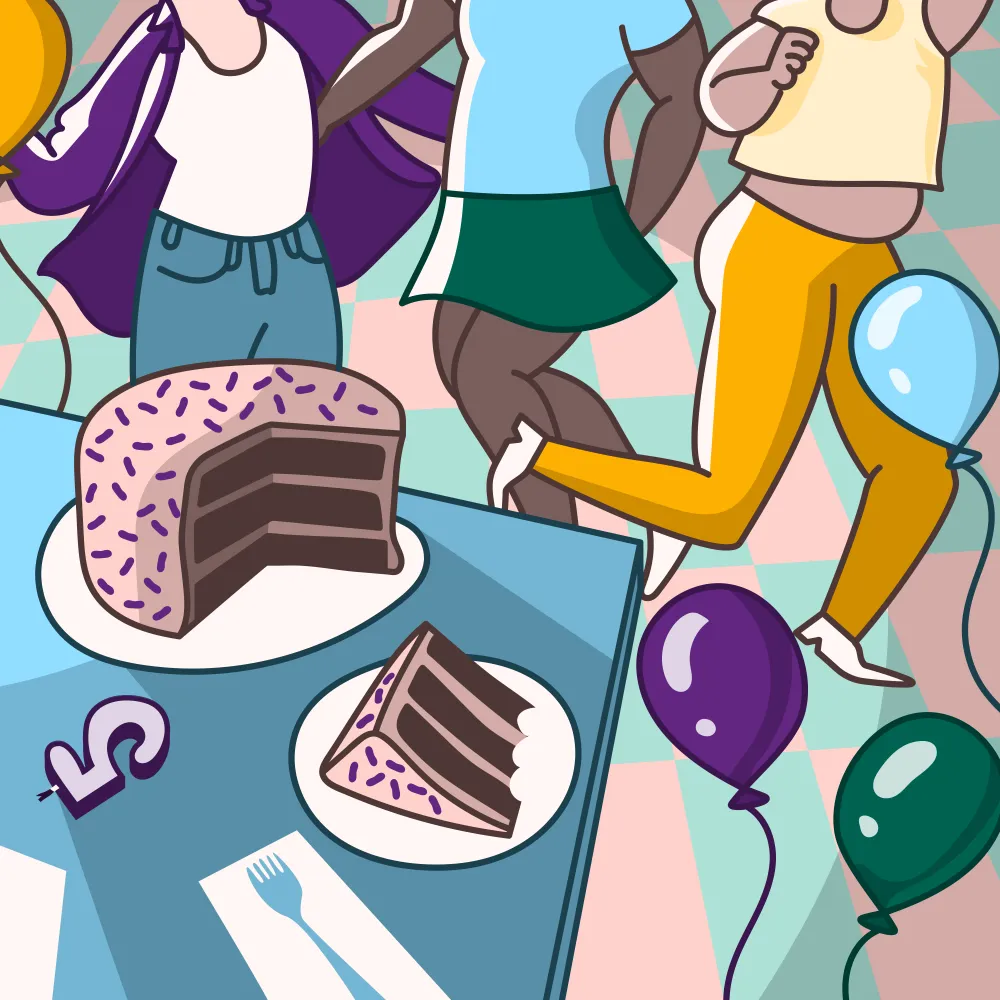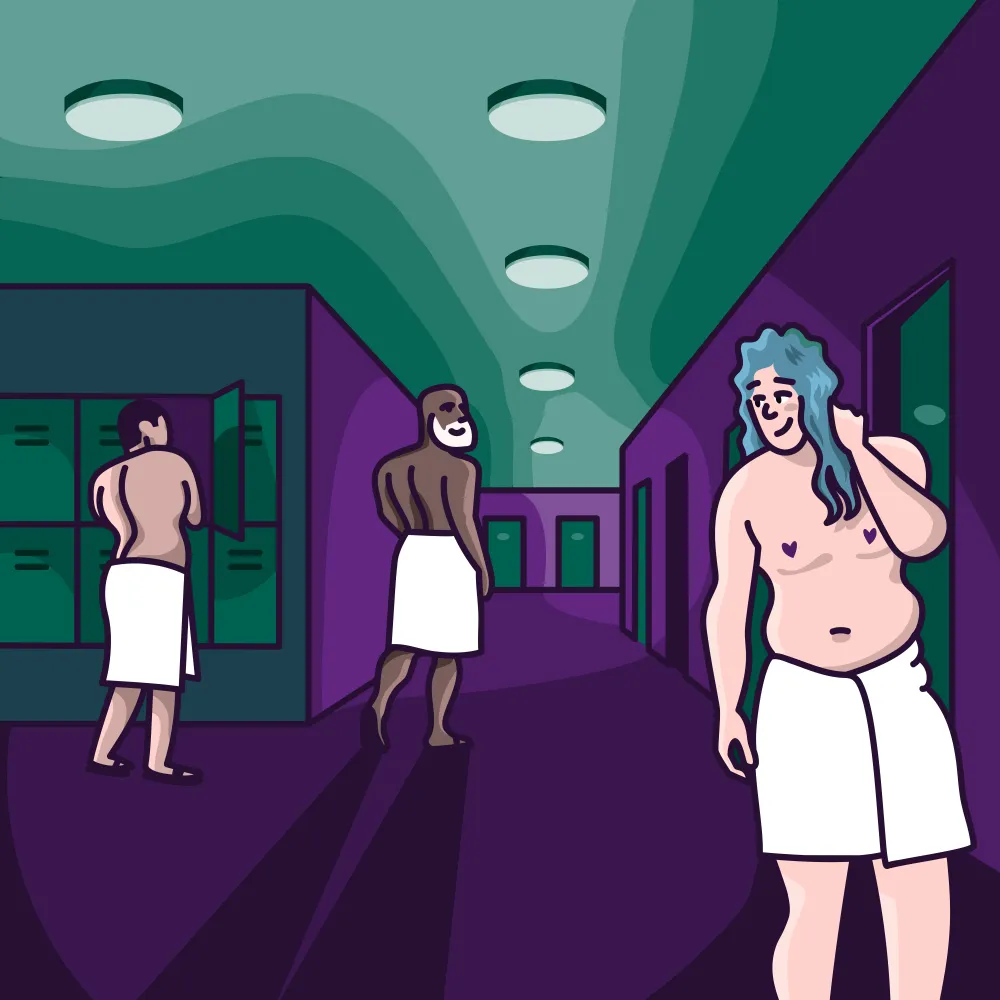Grab your speedos – summer’s here! Pride is time to celebrate with our chosen family. Want to party so hard you forget your own name? Go for it. Want to nap on a rainbow floatie while your friends fight over the playlist? Do you. Just don’t forget the sunscreen...
At Freddie, Pride isn’t our only reason to celebrate. That’s because this summer marks our fifth birthday! They grow up so fast, don’t they? It feels like just yesterday we set out with a fistful of PrEP, an internet connection, and a dream.
We sat down with our Chief Medical Officer, Dr. Caley Shukalek, to look back over the last five years. We dug deep into what’s changed for Freddie, the HIV world and queer communities – and what’s coming next.
Hi Caley! It’s hard to believe we’re at five years already. What's changed for Freddie since we launched?
It’s easier to talk about what hasn't changed! I could never have imagined that Freddie would become what it is today, and that we’d be providing care in both Canada and the US. The most meaningful change to me is the trust our brand has built in the communities we serve. We saw that develop pretty quickly, but it amazes me to see how strong that connection is five years later.
The public health impact we’ve had is also pretty incredible. We’ve served over 27,000 patients and prevented around 852 cases of HIV. Each new HIV case has a lifetime health and economic cost of $1.44m – so that’s a saving of $1.2bn. We’re now the largest PrEP provider in the country, and I’m so proud of our team for accomplishing this.
I'm also extremely proud of the content that our marketing and clinical team put out to raise awareness about PrEP and sexual health. I could only dream of being able to reach so many people through traditional public health efforts.
Since our launch we’ve added new treatments like DoxyPEP and now offer in-person care in three cities across Canada – we’ve got more in-person options in the pipeline, so keep your eyes peeled! We’ve also added HIV treatment in some regions, and this is really important for us. We believe that everyone, no matter their HIV status, should get the inclusive, affirming care they deserve. By taking a “status neutral” approach to sexual health, we can help break down stigma and build community across everyone affected by HIV.
What's changed for you personally in the last five years?
I'm not kidding when I say that I think of Freddie as my first child. It came before my fur baby and my human baby! It's been a wonder to see it grow, and I don't think that would have been possible without the support of my husband, Robert, and my friends and family. When you're trying to start and scale a company, you live and breathe it. It’s taken up more time than even my training as a physician.
I've also grown personally in the last five years. I've learned a lot about myself and how I deal with stress and juggling so many things; I'm also even more proud of my identity as a gay man and a member of the queer community, if that was even possible. For context, I walked into my first day of medical school, wearing a rainbow shirt...
A lot has happened in the HIV world too. What have you seen change since 2020?
I think so much has changed, and there is still even more change to come. If you had asked me back then, I was more optimistic about ending HIV transmissions in the near future. Politics is getting in the way of this goal – and I'm not just talking about in the US.
There are many populist governments across the world that have removed protections, funding, and programs for people most vulnerable to HIV. This affects everything from medication distribution to managing health systems. It’s led to HIV rates going up, including in Canada where we’ve seen this happen among all communities - men who have sex with men, Indigenous people and people who use drugs.
We’ve had some positive changes, though. There are new medications for treatment and for prevention, including long-acting injectable versions. We’ve also seen substantial drops in HIV cases in places like London (UK), Sydney and Australia as a whole. This is because governments have prioritized education and access to HIV prevention and treatment.
It feels like life for LGBTQ2S+ communities is looking different now. Would you agree?
We’ve seen positive and negative changes. The queer community has blended into more mainstream spaces and media, which is great, but at the same time governments in some parts of the world have removed rights for part or all of the queer community. The trans community has borne the brunt of this hateful rhetoric, mislabelled as “faith” or “science”. It’s restricting access to life-saving health services, and we’ve seen it across many US states and some Canadian provinces.
Still, I think the overall trend has been positive for the LGBTQ2S+ communities. I hope that this will continue as people come to their senses and recognize – and protect – the rights of people to live as themselves. I know that Freddie and our sibling Foria are striving to make the world a better place for queer and trans people, even if that’s just doing what we can to make a safe space for our patients.
You’re right, so much has changed. As we look forward, what’s next for Freddie?
We’ve accomplished so much, but it feels like we’re just getting started! We’ve got so much more in the pipeline: we’re growing our in-person services to bring more face-to-face care options to our patients, and we’re also adding more options for medication too. These include long-acting injectable versions of PrEP, so patients can choose the HIV prevention types that truly work best for them.




.png)








